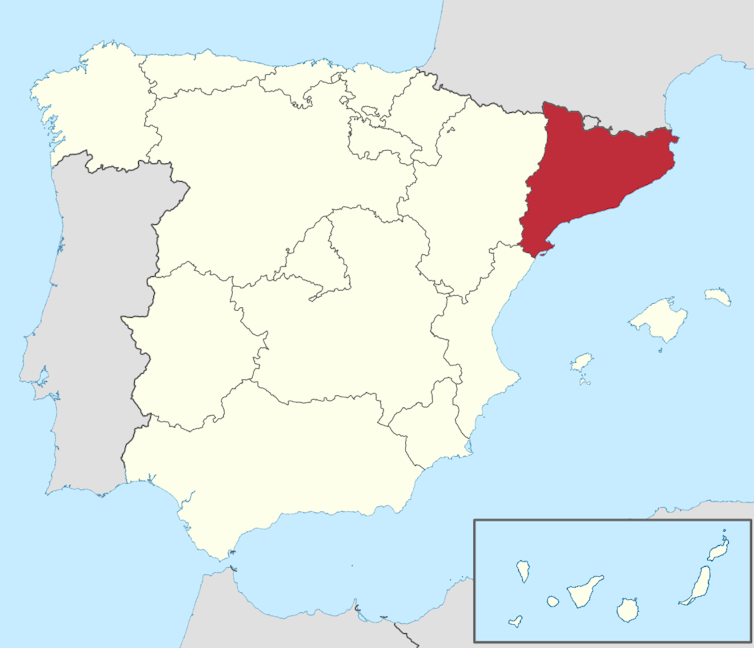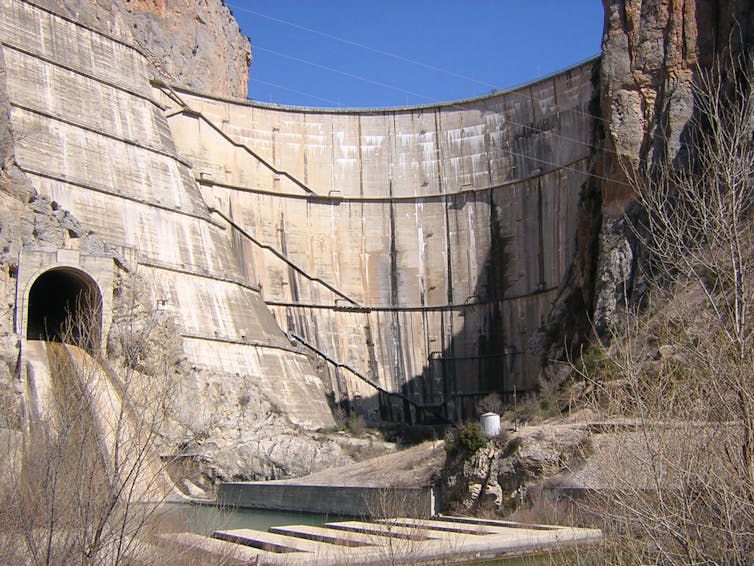October 25, 2017 11.23am BST

The Spanish central government has temporarily suspended Catalan autonomy using Article 155. This unprecedented and controversial measure enables the Spanish government to take over running of the region and to trigger regional elections to the Catalan parliament. The outcome of such elections may likely be a balance of power between separatist and anti-separatist forces very similar to the current one. This move, therefore, is little more than a way of buying time – it is by no means a way out of the Catalan stalemate.
Any long-term solution requires a deep understanding of the issues at stake, but the each day the situation is more puzzling to observers at home and around the world. Spaniards living abroad, like me, are often asked by friends and colleagues: what’s going on in Catalonia? Is the imposition of Article 155 a dictatorial move? Was independence declared? Why is there no dialogue? Who started it? And, the most feared of all these questions: what do you think is going to happen?
The easiest way for me to begin responding to these questions is by relating a personal story. I tell my friends that as a Seville-raised son of a proud Catalan who supported the equality of all Spanish citizens through his work on public health, I refuse to imagine a day in which I’ll need a passport to go to Barcelona. Catalonia, I continue to these friends, is among the richest regions of Spain, has participated for centuries in the political and economic life of the rest of the country, and has a diverse population largely made of Castilian last names and immigrants from all over – Andalusia, Extremadura, Murcia, to just mention a few. That is one of the reasons why about 50% of Catalans are not for independence.

Past abuses?
Familiar with the narrative of victimisation that the separatist intelligentsia has crafted for itself, my interlocutor may ask: “Yes, but as a historian of Spain, and of Francoism in particular, you surely admit that Spain has abused its power against the Catalan people many times in the past?”
This is where things get interesting because Catalan nationalists argue that their economic progress is and has been hampered by the rest of Spain for at least 300 years, and particularly from Francoism onward. But the fact is that Spanish politics has actually benefited the Catalan economy in the past.
There are two oft-cited examples of this from the period before Francoism. First, from the late 18th century to the late 19th century, Catalan owners of plantations in Cuba could use black slave workers even after slavery was official banned. This enabled the accumulation of capital, then reinvested in industries back home. Second, for most of the 19th century and well into the 20th, the Spanish state imposed protectionist laws against imports of cheaper textiles from England, thereby taxing all Spanish consumers to favour the booming industries that were situated in the Barcelona area.
Then we come to Franco. General Franco rose to power after the civil war (1936-39) that his army had initiated against the Republican state (established in 1931). This was not a war of “Spain against Catalonia”, as separatist propaganda reconstructs it. The new dictatorial regime violently repressed political enemies and suppressed political autonomy everywhere, not only in Catalonia. It is true that the regime forbade the use of Catalan in official documents and in education. But from the perspective of the economy, Francoism benefited the development of Catalonia over other Spanish regions.
Cement and dams
About ten years ago, when I started my investigations on the role of science and technology in the building of the Francoist regime, something caught my eye. I found that for most of the 1940s – a time of scarcity – each year Barcelona received consistently much more cement than the next city on the list, and sometimes twice as much as Madrid or Valencia. As one of Spain’s industrial strongholds, it was key for the regime to keep the factories running and the Catalan economic elite loyal.
Francoist support for industrialisation in Catalonia also showed in plans for hydropower production. The Pyrenees, the mountains dividing Spain from France, had for some decades attracted private investors interested in the potential of its rivers to produce electricity. After the civil war, the National Institute for Industry developed 12 dams in 15 years designed to maximise energy production as water flowed downstream the Noguera Ribagorzana river. The goal was to feed the national electric grid as well as to fuel heavy industries in the Barcelona area.

Catalonia grew richer faster. This was by no means a product of Francoist policies alone. But the regime did provide opportunities, resources and cheap labour that it took from other regions. As thousands of blue collar workers flew in from more depressed parts of Spain attracted by booming industrialisation, the Catalan bourgeoisie masked class struggle with nationalism.
Political economy today
Catalans for independence argue that they, as a region, pay more taxesthan poorer parts of the country. This argument misses the fact that in a system of redistributive taxation it is citizens, not regions, who pay taxes.
Catalan riches developed through a shared history of economic interaction, territorial transformations and population movement and exchange. The comparison to California is inevitable: while according to some estimates, its economy is around the fifth largest in the world, it is so only within the United States. Californian riches are the product of a shared national political economy. While Angelinos may be at times too fond of themselves, they generally admit that fact.
The same is true for Catalonia, which is why in the past two weeks around 1,300 companies have moved their legal headquarters out of Catalonia to other parts of Spain. The list includes the most important banks, international companies, and companies indexed in the Spanish stock market.
The economic consequences of this stalemate for Spain’s fragile economy, but particularly for Catalonia, are hard to exaggerate. In a country which is just starting to emerge from economic recession, it is puzzling to see how both the right and the left forget political economy in favour of the politics of regional identity – this is true not only for Catalonia, but for other regions governed by conservative and progressive parties as well.
Spanish politicians and administrators are obsessed with local politics and rarely discuss common plans regarding inequality, growth, industry, or unemployment. Devoting all energies to fight over an imaginary new border between Spaniards curtails urgent discussions about how to find new solutions to old problems in the current era of economic globalisation and climatic challenges. Meanwhile, we can only ask ¿Cui bono?: who benefits?
https://theconversation.com/how-the-catalan-economy-benefited-under-franco-and-what-this-means-for-the-ongoing-stalemate-85943



